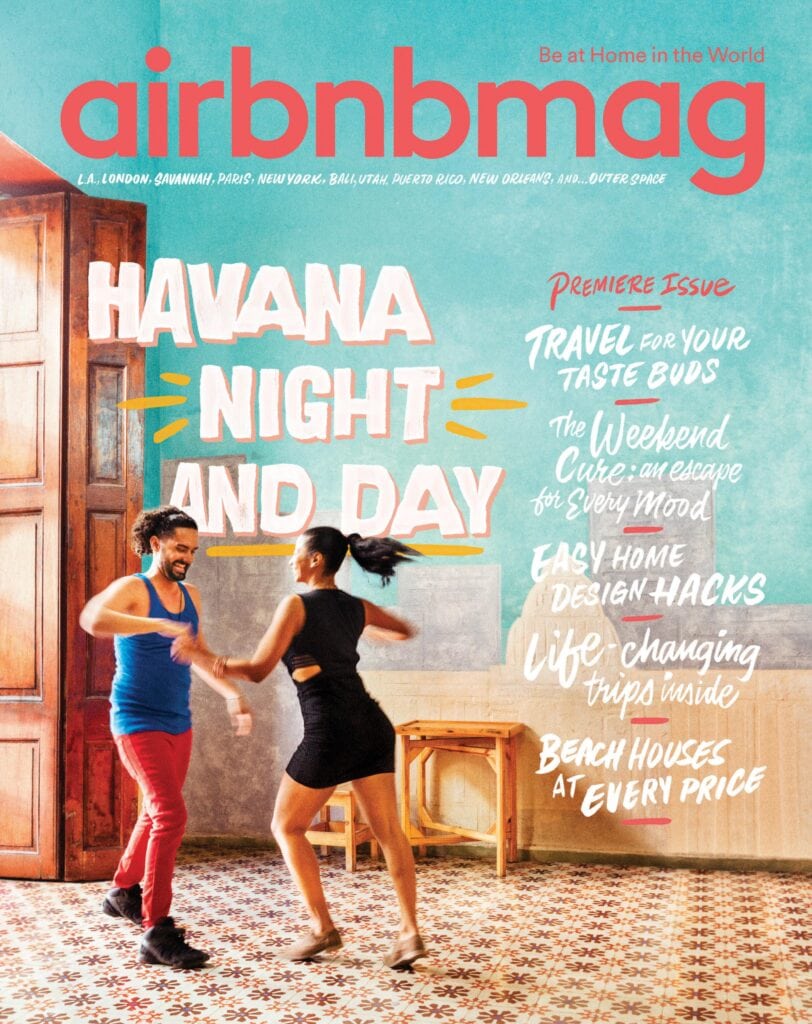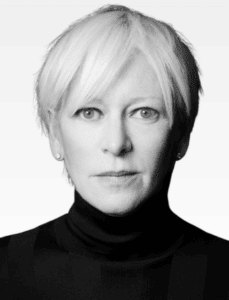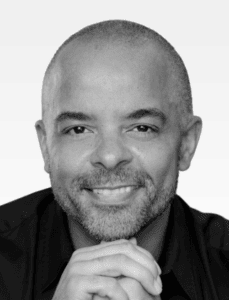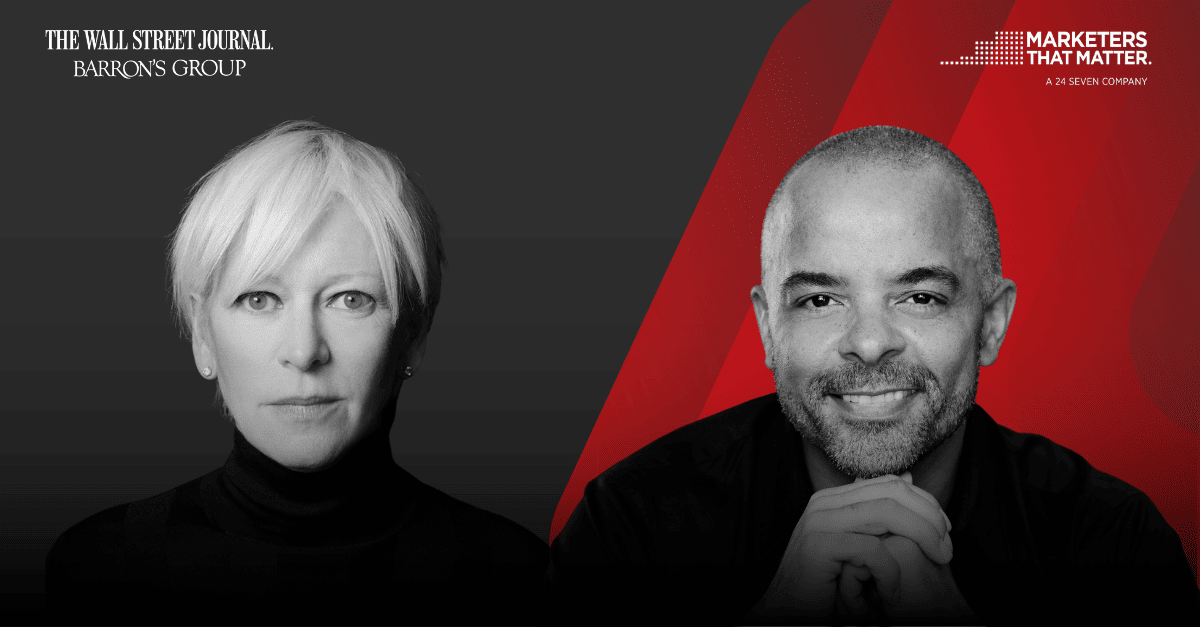What happens when creative titans Joanna Coles and Jonathan Mildenhall come together on Visionaries with the precursor “ask us anything, literally anything”?
Loads of fun! From sharing the story of how they played undercover creative consultations in Cannes and the community rallying them to write a book together to incredible guidance on how to master your creative spirit–this special episode of Visionaries Unplugged will have you scribbling notes, laughing, and wanting more.
Joanna Coles is the distinguished creative producer of the acclaimed series, ‘The Bold Type’, mentor on Project Runway, former Chief Content Officer of Hearst Magazines, former editor-in-chief of Marie Claire and Cosmopolitan, and serial board member.
Her creative-in-crime, Jonathan Mildenhall, is renowned for his pioneering work as the first CMO of Airbnb and impact on global brands like The Coca-Cola Company, Pinterest, Peloton, and Fanatics, industry icon, and serial Cannes Lions winner. Together, they launched Airbnb Travel Magazine. As you’ll be able to tell from listening in, they have remained great friends to this day!
Here are the six biggest takeaways that surfaced from Jonathan and Joanna’s episode:
- Never stop betting on yourself.
- You’re only as good as your relationships.
- Creativity can come from anywhere.
- Discover the magic where Creative meets Commerce.
- Whatever imposter syndrome says, believe the opposite.
- Embrace your unique packaging.
Stream the MTM Visionaries podcast on Apple, Spotify, Amazon, or wherever you like to listen!
Lesson # 1
Never stop betting on yourself.
Jonathan Mildenhall: I was born into poverty and grew up in a council estate in the north of England. My mother had five boys with three different men by the time she was 26, including an affair with a Nigerian man. As a result, I was the only Black member of my family. Although I received a poor education, I worked hard and was fortunate to get into Manchester Polytechnic.
After my first year, a career counselor suggested that I switch from finance to marketing, which was the first time that someone recognized my potential. I became the first ethnic minority to be recruited by McCann Erickson in London, where I enjoyed a successful 15-year career. However, in 2005, I was fired. Despite this setback, I received a severance of 250,000 pounds, which I invested in my education at Harvard Business School and was subsequently hired by Coca-Cola.
Working for Coca-Cola allowed me to put my beliefs into practice by creating marketing campaigns that were both creative and commercially successful while also elevating society’s understanding of what we can achieve together.
My work at Coca-Cola caught the attention of Brian Chesky, the founder and CEO of Airbnb, who later hired me on his team. Brian taught me the power of belief, and together, we came up with the phrase, “Airbnb means a world where anyone can belong anywhere.” This belief is at the heart of Airbnb’s culture. Coke taught me the power of brand, and Airbnb taught me the power of founders.

Joanna Coles: When I was a child, I started writing for my local newspaper, the Yorkshire Post, which had a Saturday section called the Junior Post aimed at children because I noticed that they didn’t have many pieces by kids in it.
Afterwards, I won some national essay awards as a teenager, which gave me more confidence. When I finished university, I became a graduate trainee at the Spectator magazine. I worked in advertising, circulation, on the book’s pages, and wrote a few features as well. This strange job gave me an all-around sense of how media worked at that time.
Then, I moved to New York 25 years ago to become the bureau chief for the Guardian. When I had my two children in quick succession, I realized that I couldn’t travel, which was what my job required. So, I went into magazines and ended up editing Cosmopolitan, the biggest female media brand in the world, which had 65 issues across the globe.
Later, I became the chief content officer at Hearst, which was a lot of fun. I had 300 magazines to look after worldwide. During that time, we were frantically trying to drag legacy media onto digital platforms. So, I spent quite a lot of time with startup founders, such as Jack Dorsey at Twitter, Brian at Airbnb, Facebook, and Evan Spiegel at Snapchat. My career pivoted as digital really took off, and it’s been an extremely interesting and yet unfinished journey.

Lesson #2
You’re only as good as your relationships.
Joanna Coles: When you’re in a creative field, it can be very challenging to do all the work by yourself. Creative work often requires other people to help you stay grounded. There is often a moment when you question whether your work is fabulous or hideous. If you’re going mad, or if your work is brilliant. That’s why having people around to help tether you to reality is important.

“Creative work often requires other people to help you stay grounded. There is often a moment when you question whether your work is fabulous or hideous. If you’re going mad, or if your work is brilliant. That’s why having people around to help tether you to reality is important. “
—Joanna Coles
Looking back at my career to date, I have found that my most successful moments have been largely due to the people I worked with and the teams I created or was a part of. As I continue to move forward and take on new projects, I find that the teams become increasingly important. You need people you can rely on and feel safe with.
During a recent dinner with Jonathan, we discussed the people we have worked with who made us feel safe. These people allowed us to throw out crap because somewhere in the mess, there was something worthwhile.
Lesson #3
Creativity can come from anywhere.
Jonathan Mildenhall: I get frustrated when people think that only writers, ideators, and designers are responsible for creativity in a company. For instance, Belinda Johnson, the general counsel at Airbnb, is one of the most creative people I have ever worked with. Without her creativity, Airbnb would be half its current size. Her team used creative storytelling and policymaking to ensure that Airbnb was legitimate in every city; her creativity inspired me to raise the bar for the marketing team. Creativity is not limited to content, design, advertising, and marketing. It is everywhere.
Joanna Coles: I was surprised to find out how hierarchical the American system was after I joined it. The magazine world seemed to have a legacy of this mindset, as depicted in movies like The Devil Wears Prada. For me, it was shocking that interns were not allowed to talk to anyone, despite often having really fresh ideas that had not been considered by the junior editors, who were told what not to pitch.
In my opinion, a good idea can come from anyone, whether they are the chief legal officer or a junior person still finishing their college degree. What matters is that there is a platform for their ideas, and that they are heard. While not every idea will be successful, it’s important to create a channel for ideas from unexpected sources.
Lesson #4
Discover the magic where Creative meets Commerce.
Jonathan Mildenhall: In-house teams must remember that their number one goal is to build commercial value inside the company. Therefore, we should all strive for creative excellence. Secondly, we must apply creative excellence to solve the critical problems that any brand or company is trying to address. Creativity, for its own sake, has no place in a company. However, if we apply creative excellence to specific issues, we can transform the trajectory of a company or brand.

“Creativity, for its own sake, has no place in a company. However, if we apply creative excellence to specific issues, we can transform the trajectory of a company or brand. “
— Jonathan Mildenhall
Joanna Coles: The fun of working with a commercial partner or coming up with commercial ideas oneself is finding out how to make money from it. Jonathan is incredibly good at this, which is why we’ve always had fun together. How do we create a strong feeling in someone and make it commercially viable?
We all have to make a living, and there is something really exciting about when we find the commerce and creativity meeting. Certain designers are very good at it. Michael Kors and Marc Jacobs were brilliant at it. They kept a high-level brand halo up and sold off bits of the dream at different price points. It was a genius idea, and I’ve always kept that in mind while working on things.
Lesson #5
Whatever imposter syndrome says, believe the opposite.
Jonathan Mildenhall: When I started TwentyFirstCenturyBrand with my co-founder, Neil Barry, I was determined to serve men and women who had the courage and conviction to start their own companies. Although I set up a TwentyFirstCenturyBrand with Neil Barry, and have worked with Brian Chesky, Adam Newman, and other people who were changing the world, I was reluctant to call myself an entrepreneur. I felt like an imposter.
After TwentyFirstCenturyBrand was acquired by Anthony Freeman’s holding company, Common Interest Group, and someone validated the business that Neil and I had built, I realized that I was a successful entrepreneur. It took me a long time to get rid of my imposter syndrome, but now I am proud to say that I am a successful entrepreneur.
Lesson #6
Embrace your unique packaging.
Joanna Coles: I’ve come to realize that being a woman has its advantages and disadvantages depending on the cultural context. However, I try not to focus on gender and instead see myself as being both masculine and feminine. The most important thing is to concentrate on the idea and the work, and to be passionate about developing and refining that idea.
If you can stay focused on the work, it becomes easier to navigate any obstacles that may arise due to structural misogyny or racism that exist within the companies we work for. Ultimately, by keeping your attention on the work, you will find pleasure and satisfaction in your accomplishments, which will drive you forward toward greater success.
Jonathan Mildenhall: When I was five years old, my mom gave me a message that still guides me today once I realized I was different from my brothers and mother. I remember saying to her, “I don’t want to be Black. What can you do to help me be white? I just want to look like everybody else in the family.” My mom sat me down and explained that, unfortunately, people are always going to be negative and nasty about my packaging – my skin color.
She said that we live in a world that doesn’t like “other.” But then she told me something that stuck with me: the one thing I have–that none of these people who are beating me up and picking on me at school have–is incredible energy. She told me that when I smile, the whole house smiles. And as I grew up and entered the workforce, I held onto that energy.
Even when I was the only Black or gay person in the room, I didn’t let it drag me down. I used my character and energy to shut down the naysayers and anyone who wanted to marginalize me because I was different. I found that when I shone my light on others, even the most bigoted people could appreciate what I was bringing to the table.
Meet the Visionaries
Joanna Coles
Joanna Coles is a creative producer/executive, author, and board director with wide experience in content across all forms of media: digital, television, and print. She is also the Executive Producer of the highly acclaimed The Bold Type and the former Chief Content Officer of Hearst Magazines, responsible for 300 magazines globally. She sits on a series of boards, including public companies Snap Inc. (Snapchat), Sonos and Bark; and private companies Density, KCD and Grover, Europe’s largest tech-rental platform.
She is also on the board of the Memorial for Fallen Journalists Foundation and involved with the non-profit Women Entrepreneurs New York City and advises several companies, including Masterclass, Swedish fintech Klarna, and Cornell Capital. She has a production development deal at Twentieth Century and ABC Signature Studios, creating TV shows across Disney’s streaming platforms, including FX and Hulu.
The British-born editor moved to the U.S. in 1997 as the New York Bureau Chief for The Guardian before becoming the New York Bureau Chief for The Times of London. Coles joined Hearst in 2006 as editor-in-chief of Marie Claire, was the on-air mentor for Project Runway AllStars, and was named editor-in-chief of Cosmopolitan in 2012. She was the executive producer of the unscripted series So Cosmo on E! in 2017. Over the course of her career, Coles has won numerous prestigious awards for journalism and media leadership. She was recently described by The New York Times as “one of the most powerful people in media.”
Jonathan Mildenhall
As the co-founder and chair of TwentyFirstCenturyBrand, Jonathan specializes in helping founders and CEOs realize the full potential of their company through purpose-driven brand positioning work and values-driven marketing. Jonathan counts companies such as Pinterest, Instacart, Netflix, and the Duke and Duchess of Sussex’s company, Archewell, as clients. Before founding TwentyFirstCenturyBrand, in 2014, Jonathan became the first CMO of Airbnb. By inviting the world to Belong Anywhere, he helped build the company’s value from $1bn to $35bn in just four years.
In 2006 Jonathan became VP of Global Marketing at The Coca-Cola Company. He led the team that launched Coca-Cola’s global marketing platform Open Happiness, which became Coke’s most profitable and awarded marketing platform in history. Before moving to the US, Jonathan helped build the creative fortunes of Audi, Guinness, Smirnoff, Dunhill, and Playstation via his work at some of London’s most influential advertising agencies. Jonathan also serves on the following boards: Peloton, Fanatics, GoFundMe, and Northern Star and is the Co-chair of College Track’s Los Angeles Local Advisory Board.
Visionaries, hosted by Nadine Dietz, airs every week and is brought to you in partnership with The Wall Street Journal. Each week, two new visionaries share their game plan and how that impacts today’s teams, talent, and hybrid work environment.
Marketers That Matter® is a community of top marketing executives coming together to pioneer the future of marketing, sharing real-time experiences, and solving current challenges.
Our parent company, 24 Seven, specializes in helping you find exceptional marketing and creative talent for your teams.


